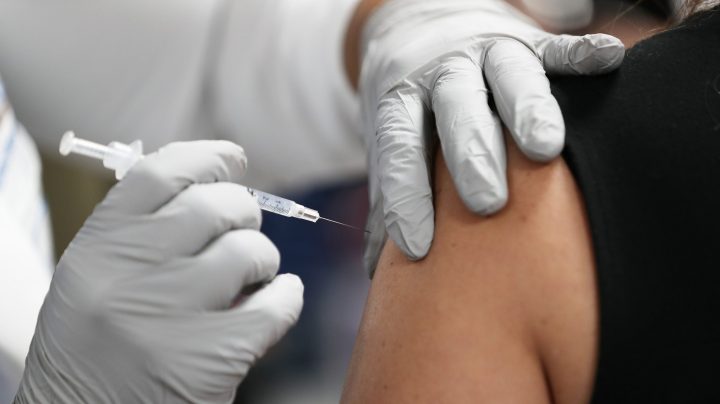
How President Joe Biden could use the Defense Production Act to increase vaccine production
Share Now on:
How President Joe Biden could use the Defense Production Act to increase vaccine production

Now that he’s officially entered office, President Joe Biden is expected to make use of a wartime law to help vaccinate more Americans.
Biden said he will invoke the Defense Production Act to increase supplies and set up 100 vaccination centers across the country by the end of his first month. Senate Democrats also called on Biden this Tuesday to invoke the act in order to increase the production and stockpiling of testing supplies, personal protective equipment and medical equipment, wrote The Hill.
On Thursday, Biden released an executive summary of his COVID-19 plan, which states that the president has directed relevant agencies to use all of their “appropriate authorities, including the DPA” to help increase the availability of items like N95 masks, gloves and the equipment and material needed for vaccine manufacturing.
Under the DPA, the government can force companies to prioritize and accept contracts for materials and services necessary “to promote the national defense.”
For example, if a company had a contract with the government to produce tanks, that company would have to fulfill it ahead of, say, a private contract, explained Deborah Pearlstein, a professor at the Cardoza School of Law at Yeshiva University. Or, the government could force a company to manufacture certain equipment.
Congress has broadened the scope of the act since it was first passed in response to the Korean War back in 1950. Pearlstein said the term “national defense” has been expanded to include critical infrastructure, homeland security and health resources — which include drugs, biological products and medical devices.
In response to the COVID-19 crisis last March, former president Donald Trump said he would invoke the Defense Production Act. But by July, a CRS report found that the Trump administration’s use of it appeared “sporadic and relatively narrow.”
In December, the New York Times reported that Pfizer and the Trump administration were close to a deal under which Pfizer would increase its COVID-19 vaccine supply to the U.S. In exchange, the government would invoke the DPA to improve Pfizer’s access to products needed for manufacturing the vaccine, such as lipids. Documents reviewed by the New York Times found that Pfizer began asking for help in early September, but “has been unhappy about the lack of response.”
Pearlstein said several of the ways the Biden administration might use the Defense Production Act would likely please pharmaceutical companies. However, she added that this raises the question of whether it ends up creating, or is perceived to create, a competitive advantage for one pharmaceutical company over another.
Brook Baker, a law professor at Northeastern University, also said that other vaccine manufacturers may have reduced access to key ingredients.
“So there is a kind of interruption to ordinary market competition that can be a result of this,“ he said. “But many people would say it’s still good public policy for the government to prioritize access to products that it needs.”
Baker noted that a more ambitious use of the Defense Production Act would be for the government to combine it with its other rights, and demand that vaccine manufacturers share their technology with other manufacturers.
There is one U.S. law, for example, that gives the government the right to use patented inventions without permission.
“I hope that President Biden would consider actions like this,” he said. “We’re in an unprecedented global emergency because of this pandemic.”
Baker added this would not only expedite vaccine supply in the U.S., but help countries overseas that are facing multi-year long delays in getting access to a vaccine.
He said that pharmaceutical companies may not have the production capacity to supply to developing countries anyways, meaning they wouldn’t lose on any sales.
“They don’t have the commercial motivation to stand in the way,” Baker said. “It would only be intellectual property imperialism that would cause them to say, ‘Well, we have to protect our IP above all else.'” (Representatives for Pfizer and Moderna did not respond to Marketplace’s request for comment.)
Whichever way Biden wields it, Pearlstein said she thinks the act should have been invoked from day one.
“It’s an unbelievably common sense movie that people have been recommending since last January and that the Trump administration, I think, inexplicably didn’t make adequate use of,” Pearlstein said. “It’s been one of the great mysteries, and in my view, great failures of the federal COVID response. The Defense Production Act authority is authority that’s been sitting there on the books, and it’s been on the books.”
There’s a lot happening in the world. Through it all, Marketplace is here for you.
You rely on Marketplace to break down the world’s events and tell you how it affects you in a fact-based, approachable way. We rely on your financial support to keep making that possible.
Your donation today powers the independent journalism that you rely on. For just $5/month, you can help sustain Marketplace so we can keep reporting on the things that matter to you.












